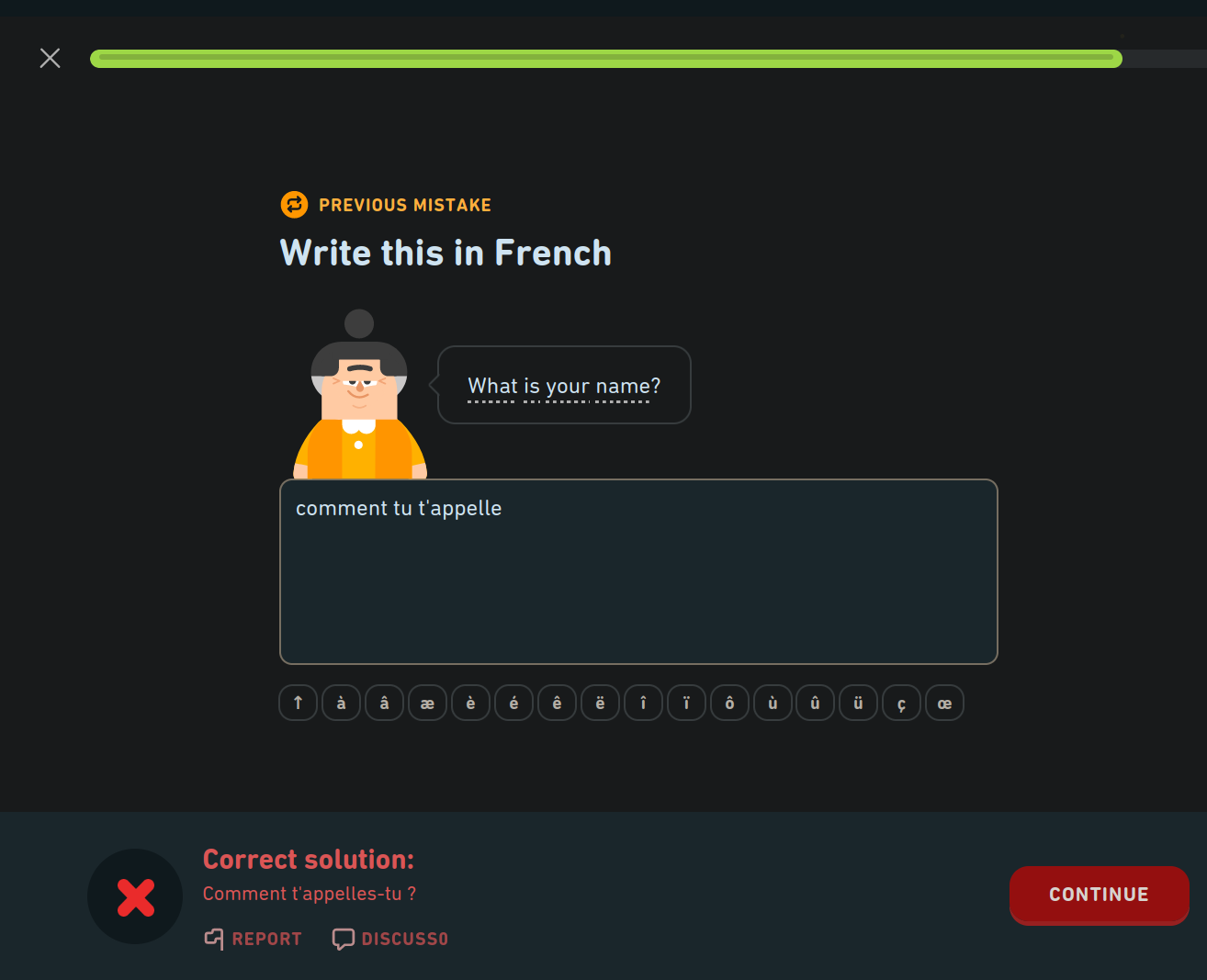Create a post
You are not logged in. However you can subscribe from another Fediverse account, for example Lemmy or Mastodon. To do this, paste the following into the search field of your instance: [email protected]
Be sure to follow the rule before you head out.
Rule: You must post before you leave.
- 1 user online
- 3 users / day
- 3 users / week
- 3 users / month
- 1 user / 6 months
- 0 subscribers
- 2.64K Posts
- 13.9K Comments
- Modlog







Huh? I don’t really get the joke; your french needs practice?
Also, is s’appelle a Quebec thing? Or does it serve a different purpose?
Are you asking why it’s “Comment t’appelles-tu?” rather than “Comment appelles-tu?”
No. T’appelle vs S’appelle.
There is no joke. I have been doing french in duolingo for a rough week and don’t understand why my answers are rejected sometimes.
Duolingo only taught me one way to say this and now invalidates my answer when I use it.
I get I might be incorrect, but I tried what I was taught.
Bienvenue au français
tout est dans les détails…good luck with word order thing, changes with the side of The Atlantic you’re on(among other things)
Welp, that’s rough. Seems like a pretty foundational thing for the bird to forget.
The s in « s’appelle » is the (reflexive) pronoun « se », whereas the t in « t’appelles » is « te ». It’s the difference between “what does he call himself” and “what do you call yourself.”
The Quebec thing would be « comment tu t’appelles-tu ? » where the second « tu » is a question marker, not a pronoun (but also I don’t think I’ve ever heard that form used for this question).
Wow! Great answers from you and [email protected]
Gonna need some time to digest this properly.